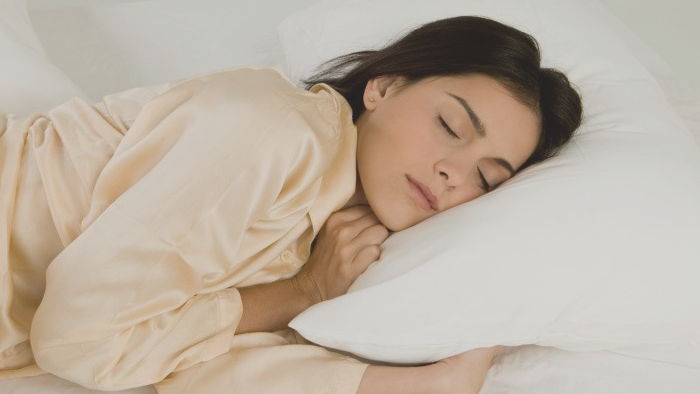
12 Oct Sleeping Beauty: Tips for a Good Night’s Rest!
Beauty sleep does indeed exist!
Scientific findings have established what you may have always known – there is a close correlation between your sleep and your physical appearance! A study, conducted by John Axelsson and the Karolinska Institute team in Stockholm and published on December 15, 2010 in the British Medical Journal, concludes that those who lack proper sleep have poorer health and are physically less attractive when compared to those who have a sufficient night’s rest. John Axelsson stated that “sleep is the natural beauty body-care” and “more effective than any other treatment that you can buy.” Other recent findings came to the conclusion that lack of sleep increases the risk of Alzheimer’s disease, depression, heart attacks and obesity. But in fact, it seems as though the risk of contracting any disease substantially increases when you sleep too little, as the immune system is severely weakened.
Steer clear from sleeping pills!
If you suffer from insomnia, it can be quite tempting to seek an immediate solution by taking sleeping pills. However in the long run, these pills are quite likely to worsen your sleeping problems. If you are looking to feel better, less tired and more alert the following day, you cannot achieve any of these through resorting to chemical sleep aids as they are likely to cause quite the opposite effect – that is to say a greater risk of inattention and a feeling of general fatigue. Such chemical products stun you, but do not let you rest. It has even been established that sleep induced by sleeping pills is usually agitated through nightmares and interrupted by frequent awakenings. We know by now that adequate, natural sleep is an essential part of a healthy lifestyle, as it detoxes the neurotoxic waste that accumulates when you’re awake, benefiting your appearance, immune function, metabolism, memory, learning, and other vital functions.
So how can you achieve a good night’s sleep without the use of sleeping pills? Here are 8 tips worth trying!
1. Sleep in complete darkness or as close to it as possible
When light hits your eye, it interrupts the production of serotonin and melatonin (sleep hormone), disrupting the circadian rhythm of the pineal gland (which manages your biological clock). If you have to get up at night to go to the bathroom, try not to turn on the light.
2. Stay away from watching television just before bedtime
Better yet, no TV in your room. As the TV activates the brain, it also disturbs the pineal gland. In addition to staying up using the internet, the TV makes you go to bed an hour or two later than you should.
3. Wear socks to bed
When you get too cold, your body naturally starts to move in order to keep warm, and as the feet are often the first body part to cool, there is a risk of waking up and decreasing the quality of your sleep. One study discovered that having warm feet increases the quality of sleep, so be sure to keep them warm!
4. Move your alarm clock and other electrical devices from your bed
Their sounds and flashing diodes can disturb you and looking at the numbers on your alarm clock will only add to your anxiety.
5. Reserve your bed for sleep
If you are used to watching television or working in bed, this can increase difficulties in trying to relax and fall asleep, so try to avoid these activities in your bed!
6. Consider having separate rooms
Recent studies (in addition to the experience of many generations!) indicate that sharing a bed can severely disrupt sleep, particularly if the other person suffers from restless sleep, wakes up during the night or snores. Dr Neil Stanley, an expert at the University of Surrey, strongly recommends having separate room. He recalls that the habit of sleeping for two in the same room became more prominent following the industrial revolution with more and more people relocating into cities where space was expensive. In Roman times, the marital bed was not used for sleeping, but well … you guessed it.
7. Get regular physical exercise
A study from the Stanford Medical School found that after a 16-week program of moderate exercise, the subjects who were studied slept on average 15 minutes earlier and 45 minutes longer than usual. However, be sure not exercise just before going to bed as this can keep you awake!
8. Do not eat candy just before going to sleep
Not only can this cause nervousness, but it can also cause hypoglycemia after a few hours, which will wake you up. However, you can consume protein a few hours before sleeping as this will help to produce melatonin (the sleep hormone).
